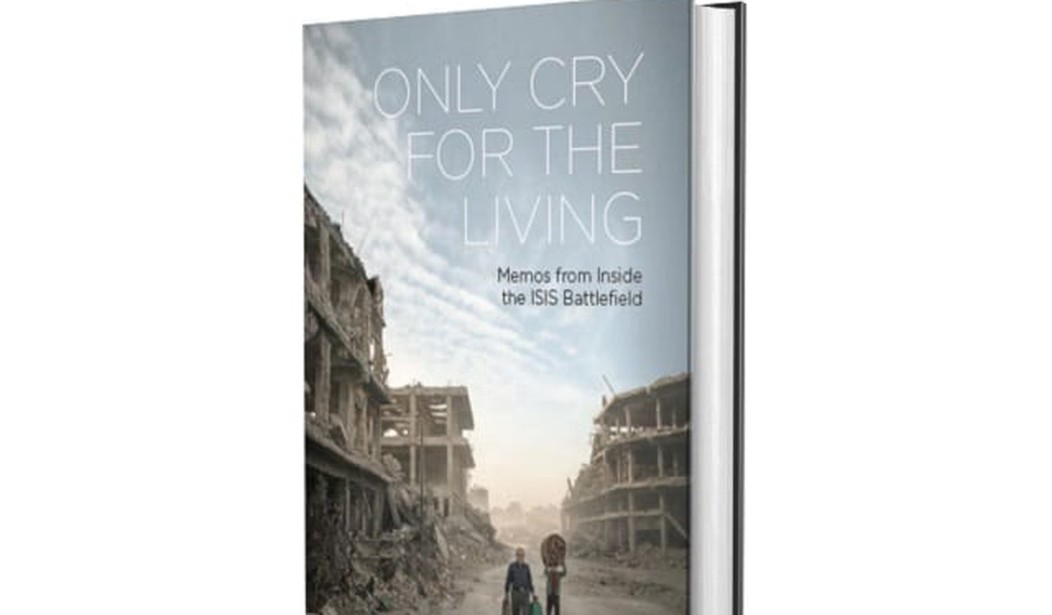Book Review
The history of the Middle East is written in blood. Innocent blood. Ever since mankind was thrown out of the Garden of Eden and forced to find a way to survive in the Fertile Crescent, powerful armies have marched across the landscape and, with each passing, causing harm to the indigenous peoples who, through no fault of their own, simply got in the way.
Conflict in the Middle East in recent decades has a constant price. Every conflict, regardless of reason, cost the people of the region around 400,000 lives per decade. Historians spend most of their time documenting the movement of the armies. They record the changes of leadership, the transfers of treasure, and the subterfuge behind the scenes of power. The combatants chronicle their heroism and fear; as well as their pride in the technology that they bring to bear to subdue their enemies. Like extras in the background on a movie set, the ordinary people whose homes and lives the armies smash as they seek glory are all but forgotten.
And then you get an investigative reporter like Hollie McKay. I first met her in 2014. She had just come back from Iraq reporting on the UN mission working to clear landmines from the countryside leftover from the war between America and Saddam Hussein. Little did I know then that I would witness over 2,500 stories she would file over the next five years chronicling the rise and fall of the brutal nightmare of the Islamic State. These stories would not be gathered from the relative safety of the Green Zone or by embedding with the powerful allied armies of the region; but by walking out into the dangerous world outside the wire to talk to the people one by one; to turn the faceless into humans. Hollie didn’t just write about places like Sinjar, Aleppo, Mosul, Fallujah, or Tora Bora, she went there, often in the thick of major battles. Suffice it to say that Hollie McKay uncovered so much real-time actionable information in her reporting that “three-letter agencies” around the globe have people devoted to dissecting every article she publishes.
But it was the human beings McKay encountered while covering the war that filled notebook after notebook. Vignettes of the price that conflict extracts on the displaced, bravely doing their best to endure. These are the stories that have been captured in Hollie’s new book “Only Cry for the Living — Memos from Inside the ISIS Battlefield”. There are the stories of real people from the first days of running from the advancing hordes of Daesh, through the suffering of genocide and sex slavery, to the fight to bring a fragmented coalition barely able to tolerate each other to defeat a 21st-century version of the Dark Ages. You’ll meet people who were betrayed by their neighbors, who lost everything including most of their loved ones, and still somehow persevered. You’ll fall in love with them, even the ones who only live on in memory because Hollie wrote their stories down in her notebook before they died. You’ll see the soldiers of both sides and the toll it took from their souls. You’ll meet the local officials, field commanders, and clerics, far from the capitals, who did their best to bring order to a hell not of their choosing.
McKay does not judge in this book. It’s remarkably devoid of pronouncement policy. The tragedy of the events that unfolded is policy statement enough. Even combat is presented as an almost dreamlike event that just happens to accompany getting to know the humans in the middle of it. Tracers are lights in the night and artillery barrages are sprinkles against the walls.
Rather, Hollie narrates. She takes the reader on a journey to get to know people. She lets people tell their stories so the reader sees how war takes its toll on everyone caught in it. The pain of a husband unable to do anything to help his crippled beloved. The mothers who cannot let go of the hope that their children might come home. The soldiers struggling with what their life experiences have left them scarred with. McKay asks again and again, “What is war?” The answer is in what war does to the people that must endure it.
Ultimately, these people are worth getting to know because they are the reason why humanity matters in the middle of any crisis. We should learn from them before we start another cycle of conflict that will cost the Garden of Eden another 400,000 souls per decade. I recommend this book to every analyst, policymaker, veteran, and caring soul.
“Only Cry for the Living” by Hollie McKay is available from Amazon.com at https://www.amazon.com/Only-Cry-Living-Battlefield-Foreword/dp/1942549636/













Join the conversation as a VIP Member